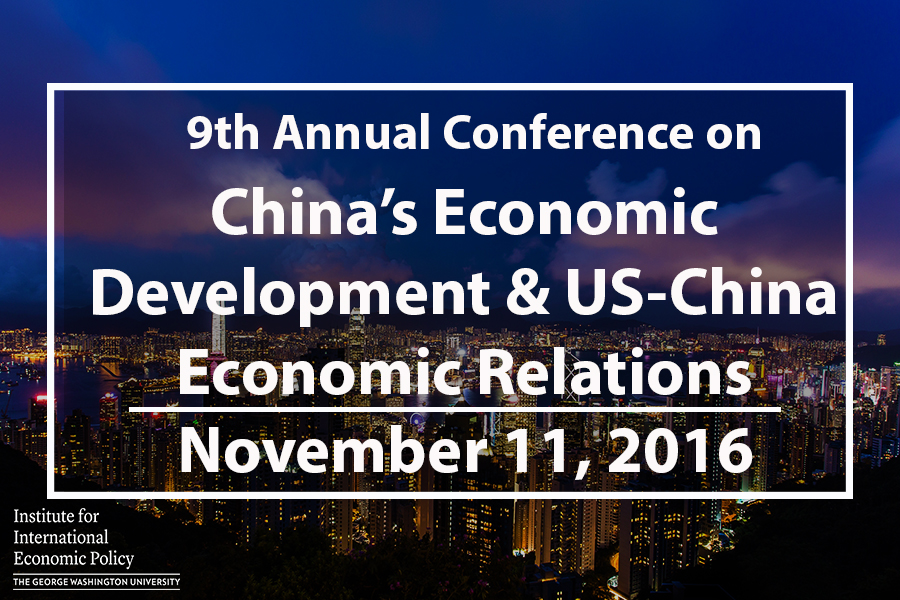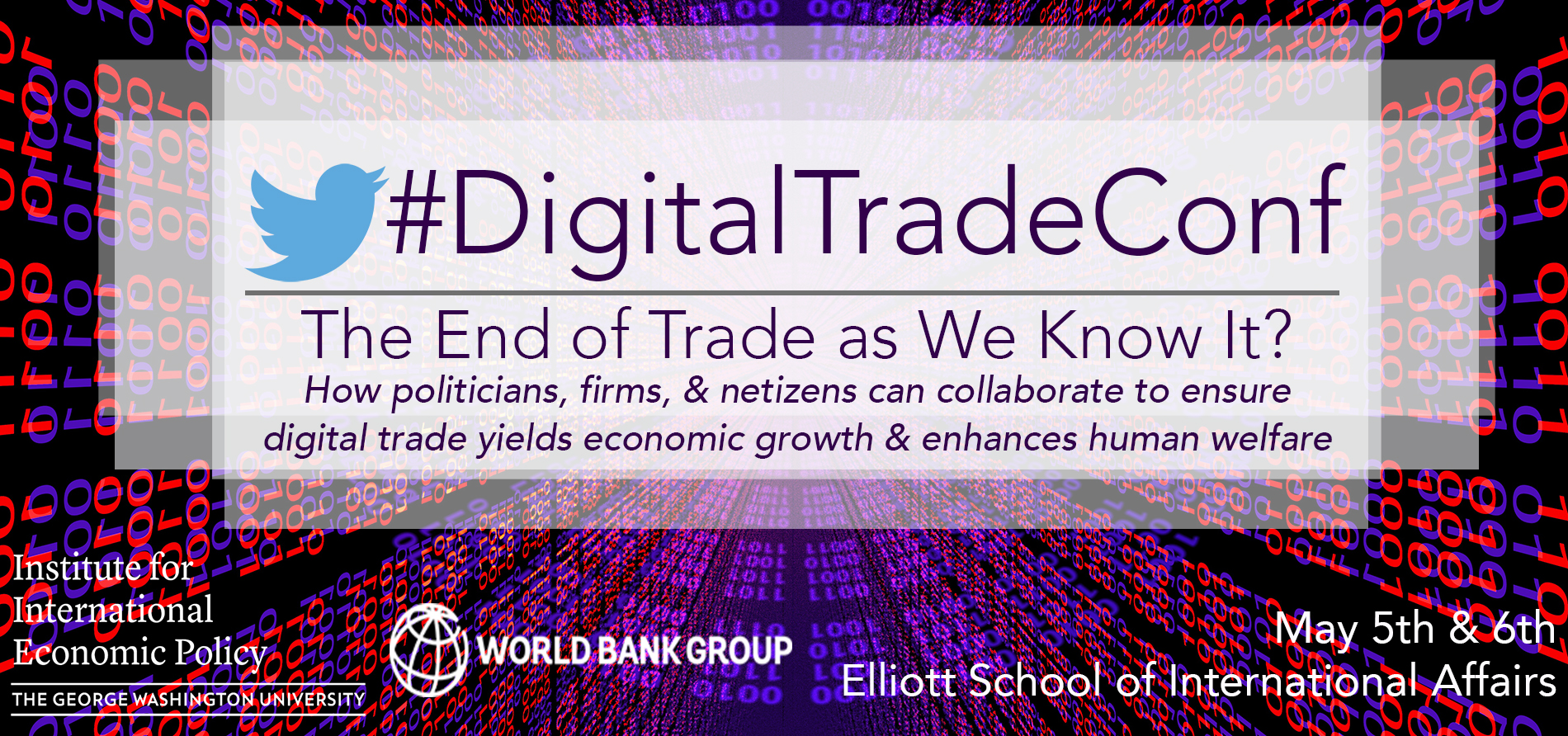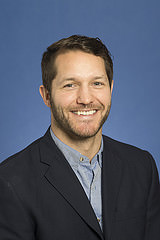Keynote Speakers

Susan Lund, Partner, McKinsey Global Institute, McKinsey & Company (author of Digital Globalization—the New Flows)
Susan Lund is a partner of McKinsey & Company and a leader of the McKinsey Global Institute. She conducts economic research on global financial markets, trade, labor markets, and country productivity and growth.
Her latest report focuses on how digital technologies are transforming globalization. Other recent research examines the continuing accumulation of global debt and potential risks; how digital talent platforms are transforming labor markets; and growth prospects for African economies given the collapse of commodity prices. Susan has an active travel schedule discussing research findings with business executives and policy makers, and she is a frequent speaker at global conferences.
She has authored numerous articles on digital globalization. Susan is a member of the Council on Foreign Relations, the National Association of Business Economists, and the Conference of Business Economists.

Klaus Tilmes, Senior Director, World Bank Group Global Practice on Trade and Competitiveness
Klaus Tilmes is Director of the Trade & Competitiveness Global Practice at the World Bank Group. In his position, Tilmes is responsible for such global themes as Trade, Competitive Sectors, Investment Climate and Innovation & Entrepreneurship. Prior to his current position, Klaus was the Director of the Financial and Private Sector Development (FPD) Network at the World Bank, a position he held from 2010 to 2014. Tilmes has a Master’s degree in Public Administration focused on Development Economics and Public Sector Management from Harvard University, and a Master’s in Economics from the University of Mannheim.
Panelists
Susan Ariel Aaronson, Research Professor of International Affairs and a Cross-Disciplinary Fellow at the George Washington University’s Elliott School of International Affairs
Susan Ariel Aaronson is Research Professor of International Affairs and a Cross-Disciplinary Fellow at the George Washington University’s Elliott School of International Affairs. She is currently the Carvalho Fellow at the Government Accountability Project and was the former Minerva Chair at the National War College. Aaronson’s research examines the relationship between economic change and human rights. She is currently directing projects on digital trade and digital rights, repression and civil conflict; trade, trust and transparency; and whistleblowers at international organizations such as the UN and WIPO. Her work has been funded by major international foundations including MacArthur, Ford, and Rockefeller; governments such as the Netherlands, U.S., and Canada; the UN, ILO, and World Bank, and U.S. corporations including Ford Motor and Levi Strauss. Dr. Aaronson is a frequent speaker on public understanding of globalization issues and international economic developments. She regularly comments on international economics on “Marketplace” and was a monthly commentator on “All Things Considered,” “Marketplace,” and “Morning Edition.” She has also appeared on CNN, the BBC, and PBS to discuss trade and globalization issues. Aaronson was a Guest Scholar in Economics at the Brookings Institution (1995–1999); and a Research Fellow at the World Trade Institute 2008-2012.
Daniel Adidwa, Tour2.0, South Africa
Mr. Adidwa is a leader who is passionate about entrepreneurship and technology. He takes pleasure in channeling this passion through sourcing innovative solutions, that address current problems within the African continent and taking these solutions to market.
He is a qualified marketer and attained his BA Degree in Integrated Marketing Communication and a Diploma in Account Management from the AAA School of Advertising. Daniel has worked at various communications agencies, where he worked on various local and international blue chip accounts.
He is passionate about the African continent, its people and the stories behind African communities. He believes that technology can play a large role in getting the world to experience real African Stories. He currently holds the position of CEO of Tour2.0 and Vice-Chairman of the Regional Tourism Association of Southern Africa (RETOSA) youth steering committee.
Usman Ahmed, Director, Global Public Policy, PayPal
Usman Ahmed is the Head of Global Public Policy at PayPal Inc. His work covers a variety of global issues including financial services regulation, innovation, international trade, and entrepreneurship. He has given talks on these subjects at conferences and universities around the world and has published in the World Economic Forum Global Information Technology Report, Journal of World Trade, and the Michigan Journal of International Law. Ahmed is also an Adjunct Professor of Law at Georgetown University Law School where he teaches courses on international law and policy issues related to the Internet. Prior to PayPal, Usman worked at a number of policy think tanks in the Washington DC area focusing on good governance issues. Ahmed earned his JD from University of Michigan, his MA from Georgetown University’s School of Foreign Service, and his BA from University of Maryland.
Robert D. Atkinson, President, Information Technology and Innovation Foundation
As founder and president of the Information Technology and Innovation Foundation (ITIF), Robert D. Atkinson leads a prolific team of policy analysts and fellows that is successfully shaping the debate and setting the agenda on a host of critical issues at the intersection of technological innovation and public policy.
He is an internationally recognized scholar and a widely published author whom The New Republic has named one of the “three most important thinkers about innovation,” Washingtonian Magazine has called a “tech titan,” and Government Technology Magazine has judged to be one of the 25 top “doers, dreamers and drivers of information technology.”
A sought-after speaker and valued adviser to policymakers around the world, Atkinson’s books include Innovation Economics: The Race for Global Advantage (link is external) (Yale, 2012), Supply-Side Follies: Why Conservative Economics Fails, Liberal Economics Falters, and Innovation Economics is the Answer (link is external) (Rowman & Littlefield, 2006), and The Past And Future Of America’s Economy: Long Waves Of Innovation That Power Cycles Of Growth (link is external) (Edward Elgar, 2005). He also has conducted groundbreaking research projects and authored hundreds of articles and reports on technology and innovation-related topics ranging from tax policy to advanced manufacturing, productivity, and global competitiveness.
Abdoul Aziz Sy, Vice President for International Rights and Strategy, Public Knowledge
Abdoul Aziz Sy holds a Master in International Sustainable Development from Brandeis University in the United States. He joined the team Upstart in March 2014 as project manager of the ICT project for Good Governance, coordinated by Upstart in partnership with OSIWA Foundation. Aziz also holds a BA in International Relations and has been for 2 years vice president of SIFE team (Students in Free Enterprise) Suffolk University with the aim to find entrepreneurial solutions to improve the lives of communities. His career includes such courses in structures such as Ernst & Young and the American NGO Ashoka.
Brian Bieron, Director of Public Policy, eBay and Main Street
Brian Bieron is Executive Director of the Public Policy Lab. Bieron has published and spoken on a broad variety of issues at the nexus of technology and commerce including taxation, telecommunications, customs, and intellectual property.
Bieron led eBay’s US Government Relations Team in Washington, DC from 2004 to 2012, overseeing eBay staff, outside lobbying firms, a DC-based PR firm, various trade associations and a federal political action committee. These resources were focused on issues important to eBay and its community of users, including sales tax collection on the Internet, net neutrality, proposals to ISP third-party liability, and cross-border trade policies impacting small businesses.
Prior to joining eBay, Bieron spent three-and-a-half years as a Director at Clark & Weinstock, one of Washington’s leading bipartisan lobbying and consulting firms. He supported a wide range of clients, including leading technology, telecommunications, and financial services companies such as Microsoft, AT&T, PhRMA, NASDAQ, and eBay. He also spent twelve years on Capitol Hill as a congressional staff person, including service as Policy Director for House Rules Committee Chairman David Dreier, where he played a lead role on key congressional trade and technology issues.
Nicholas Bramble, Public Policy Manager, Google
Nicholas Bramble is a Public Policy Manager at Google, where he focuses on trade policy and international relations. Prior to joining Google he was a Presidential Innovation Fellow, and served as a lecturer and director of the Law and Media Program at Yale Law School. He filed amicus briefs in Golan v. Holder and FCC v. Fox, and has published articles in Hastings Law Journal, Michigan Telecommunications and Technology Law Review, and the Harvard Journal of Law and Technology.
Mr. Bramble earned his J.D. at Harvard Law School and holds B.A. and M.A. degrees from Stanford University. He clerked for the Honorable Charles F. Lettow on the US Court of Federal Claims, and was a visiting researcher at the Princeton Center for Information Technology Policy.
Ralph Carter, Managing Director, Federal Express
As Managing Director of Legal, Trade & International Affairs, Ralph Carter is responsible for coordinating FedEx’s international regulatory affairs, including trade policy. Mr. Carter joined FedEx in Brussels, Belgium in 2001 and directed FedEx’s government affairs activities with the European Commission, Parliament and Council, as well as with Member State governments. Mr. Carter also served as in-house legal counsel responsible for commercial transactions and regulatory compliance for Central and Eastern Europe.
Before joining FedEx, Mr. Carter worked in the United States Department of State, serving as the Special Assistant to the United States Ambassador to the European Union. He is currently a member of the State Department’s Advisory Committee on International Economic Policy.
Mr. Carter has a BS and JD from the University of Arkansas at Little Rock and a Masters of Laws from American University.
Anupam Chander, Professor of Law, UC-Davis, author of “The Electronic Silk Road”
Anupam Chander is Director of the California International Law Center and Martin Luther King, Jr. Professor of Law at the University of California, Davis. A graduate of Harvard College and Yale Law School, he has been a visiting professor at Yale, Chicago, Stanford, and Cornell. The author of The Electronic Silk Road (Yale University Press), he has published widely in the nation’s leading law journals, including the Yale Law Journal, the NYU Law Review, and the California Law Review. He practiced law in New York and Hong Kong with Cleary, Gottlieb, Steen & Hamilton. He served on the executive council of the American Society of International Law and serves as a judge for the Stanford Junior International Faculty Forum. The recipient of Google Research Awards and an Andrew Mellon grant on the topic of surveillance, he is a member of the ICTSD/World Economic Forum E15 expert group on the digital economy and the World Economic Forum expert group on Internet fragmentation.
Krista Cox, Director of Public Policy Initiatives, Association of Research Libraries
Krista Cox is the director of public policy Initiatives at ARL. In this role, she advocates for the policy priorities of the Association and executes strategies to implement these priorities. She monitors legislative trends and participates in ARL’s outreach to the Executive Branch and the US Congress.
Prior to joining ARL, Krista worked as the staff attorney for Knowledge Ecology International, an organization dedicated to searching for better outcomes, including new solutions, to the management of knowledge resources, particularly in the context of social justice. While at KEI, she wrote and filed amicus briefs in various intellectual property cases; attended the WIPO Diplomatic Conference that concluded the Marrakesh Treaty to Facilitate Access for Persons Who Are Blind, Visually Impaired, or Otherwise Print Disabled; and worked extensively on promoting better policies for the intellectual property chapter of the Trans-Pacific Partnership Agreement (TPP). She also has prior experience as the staff attorney for Universities Allied for Essential Medicines, an organization that promotes access to medicines, particularly those technologies created through federal funding.
Krista received her JD from the University of Notre Dame and her BA in English from the University of California, Santa Barbara. She is licensed to practice before the Supreme Court of the United States, the Court of Appeals for the Federal Circuit, and the State Bar of California.
Michael Ferrantino, World Bank Lead Economist
Michael J. Ferrantino is Lead Economist in the World Bank Group Trade and Competitiveness Global Practice. Prior to joining the Bank, he was Lead International Economist at the US International Trade Commission. Michael’s published research spans a wide array of topics relating to international trade, including non-tariff measures and trade facilitation, global value chains, the relationship of trade to the environment, innovation, and productivity, and US-China trade. He has taught at Southern Methodist, Youngstown State, Georgetown, American, and George Washington Universities. Michael’s recent work includes: “The Benefits of Trade Facilitation: A Modelling Exercise,” prepared for the World Economic Forum’s January 2013 report on supply chains, “Enabling Trade: Valuing Growth Opportunities;” a chapter on non-tariff measures in The Ashgate Research Companion to International Trade Policy (2012); and “Evasion Behaviors of Exporters and Importers; Evidence from the U.S.-China Trade Data Discrepancy,” with Xuepeng Liu and Zhi Wang, Journal of International Economics, 2012. Michael holds a PhD from Yale University.
Paul Fehlinger, Manager and Co-Founder, Internet & Jurisdiction Project
Paul Fehlinger is the Manager and Co-Founder of the Internet & Jurisdiction Project. He is actively engaged in global Internet fora, including as a speaker at venues such as the UN Internet Governance Forum, OECD, or Council of Europe. Paul was appointed to the Advisory Network of the Global Commission on Internet Governance and to the Working Group on Rule of Law of the Freedom Online Coalition. He is also a participant in the Council of Europe Committee of Experts on Cross-border Flow of Internet Traffic and Internet Freedom, and the World Economic Forum’s Future of the Internet Initiative.
He holds a Master in International Relations from Sciences Po Paris, where he specialized in Internet politics and new modes of global governance. He was a scholar of the German National Merit Foundation (Studienstiftung), a visiting researcher at the Max Planck Institute for the Study of Societies and holds a BA in European Studies from Maastricht University. Prior to launching the Internet & Jurisdiction Project, Paul wanted to become a journalist and worked for a political news broadcaster in Berlin and an international radio station in Paris.
Sean Flynn, Professional Lecturer, American University School of Law
Sean Flynn teaches courses on the intersection of intellectual property, trade law, and human rights and is the Associate Director of the Program on Information Justice and Intellectual Property (PIJIP). At PIJIP, Professor Flynn designs and manages a wide variety of research and advocacy projects that promote public interests in intellectual property and information law and coordinates PIJIP’s academic program, including events, student advising and curriculum development. Professor Flynn’s research examines legal frameworks promoting access to essential goods and services. He serves as counsel for advocacy organizations and state legislatures seeking to promote and defend regulations that promote access to essential medicines. (PIJIP).
Prior to joining WCL, Professor Flynn completed clerkships with Chief Justice Arthur Chaskalson on the South African Constitutional Court and Judge Raymond Fisher on the U.S. Court of Appeals for the Ninth Circuit. He also represented consumers and local governments as a senior associate with Spiegel & McDiarmid and as senior attorney for the Consumer Project on Technology, served on the policy team advising then Assistant Attorney General for Civil Rights Deval Patrick, and taught Constitutional Law at the University of Witwaterstrand, South Africa.
Damien Levie, EU Delegation, Trade and Agricultural Affairs
Damien Levie heads the Trade and Agriculture Section of the European Union Delegation in Washington, DC.
Before coming to Washington, he was a member of the Cabinet (personal office) of EU Trade Commissioner Karel De Gucht from 2009 to 2012. He subsequently headed the USA and Canada team of the Directorate General for Trade at the European Commission. During that period, he contributed to the pursuit of an ambitious EU trade policy agenda with the Americas, in particular the launch of the Transatlantic Trade and Investment Partnership (TTIP) negotiations between the U.S. and the EU, for which he was deputy chief negotiator.
Damien joined the European Commission in 2001, working on issues including merger control policy and REACH, the EU’s basic chemical regulation. From 2005 to 2009, he served in the Cabinet of Louis Michel, EU Commissioner for Development and Humanitarian Aid. During that period, he worked on economic development policy in Africa as well as European economic integration issues.
He has law degrees from KU Leuven and the University of Chicago Law School and an economics degree from UC Louvain. He was a lawyer at a major US law firm in Brussels and New York from 1994 to 2001.
Jeremy Malcolm, Senior Global Policy Analyst, Electronic Frontier Foundation
Jeremy Malcolm joined EFF’s international team in 2014 and works on the international dimensions of issues such as intellectual property, network neutrality, Internet governance, and trade. Prior to that he worked for Consumers International coordinating its global programme Consumers in the Digital Age. Jeremy graduated with degrees in Law (with Honours) and Commerce in 1995 from Murdoch University, and completed his PhD thesis at the same University in 2008 on the topic of Internet governance. Jeremy’s background is as an information technology and intellectual property lawyer and IT consultant. He enjoys acting, writing and coding, and his ambitions include writing an original science fiction novel, learning to juggle and learning Japanese (ideally both at once).
Jeremy is admitted to the bars of the Supreme Court of Western Australia (1995), High Court of Australia (1996) and Appellate Division of New York (2009). He is a former co-coordinator of the Civil Society Internet Governance Caucus, founder of Best Bits, and currently a Steering Committee member of the OECD Civil Society Information Society Advisory Council.
Joshua Meltzer, Senior Fellow, Brookings
Dr. Joshua Meltzer is a senior fellow in Global Economy and Development at the Brookings Institution and an adjunct professor at the Johns Hopkins School for Advanced International Studies. Dr. Meltzer is also a reviewer for the Journal of Politics and Law. His work focuses on international trade law and policy issues relating to the World Trade Organization (WTO) and Free Trade Agreements.
Sandy Reback, Director, Global Public Policy, Akamai
Sanford Reback, Director of Global Public Policy at Akamai Technologies, has more than 25 years of policy, business, and legal experience in the technology sector. He served as Deputy General Counsel for Policy at UUNET Technologies, then the world’s largest Internet service provider (ISP); Senior International Counsel at MCI, then a Fortune 100 company; and a senior executive at two venture-backed technology companies. In the Executive Office of the President at the U.S. Trade Representative, Reback helped negotiate NAFTA, the World Trade Organization agreements, and several international technology agreements. Immediately prior to joining Akamai, he was Senior Technology Analyst and Director of Global Business at Bloomberg Government. Reback holds a B.A. in political science from Stanford University, a J.D. from Harvard Law School, an M.P.A. from Harvard’s Kennedy School of Government, and was a Fulbright Fellow in London.
Kevin M. Rosenbaum, Of Counsel, Mitchell Silberberg & Knupp LLP; Counsel to the International Intellectual Property Alliance
Kevin Rosenbaum has over sixteen years of experience counseling on intellectual property and international trade matters as well as with legislative and regulatory processes and policy development related to international trade and the protection and enforcement of intellectual property rights in foreign markets. He currently serves as counsel to the International Intellectual Property Alliance (IIPA), a coalition of five copyright-based industry trade associations (comprised of over 3,200 companies), on international copyright protection and enforcement matters.
Carolina Rossini, Vice President for International Rights and Strategy, Public Knowledge
Carolina Rossini is the Vice President for International Rights and Strategy at Public Knowledge. Previously, Carolina was a Project Director at New America Foundation’s Open Technology Institute, the International Intellectual Property Director at Electronic Frontiers Foundation (EFF), and a Fellow at the Berkman Center at Harvard University.
Alongside her work at Public Knowledge, she is a Global Partners Digital International Associate, an X-Lab fellow for New America Foundation, and an Advisory Board Member of Open Knowledge Foundation for both the UK and Brazil. She is also an Advisory Board Member for Saylor Foundation, Instituto Educadigital, and InternetLab. Carolina has an LLM in Intellectual Property from Boston University, an MBA from Instituto de Empresas, an MA in International Economic Negotiations from UNICAMP/UNESP, and a JD from University of Sao Paulo – USP.
Matthew Schruers, Vice President, Law & Policy, Computer & Communications Industry Association
Matthew Schruers is Vice President for Law & Policy at the Computer & Communications Industry Association (CCIA), where he represents and advises the association on domestic and international policy issues including intellectual property, competition, and trade. He is also an adjunct professor at the Georgetown University Law Center and the Georgetown Graduate School Program on Communication, Culture, and Technology (CCT), where he teaches courses on intellectual property.
Mr. Schruers joined CCIA from Morrison & Foerster LLP in 2005, where he practiced intellectual property, antitrust, and administrative law. Mr. Schruers received his J.D. from the University of Virginia School of Law, where he served on the editorial board of the Virginia Law Review, and received his B.A. from Duke University.
Shawn Tan, World Bank
Shawn Tan is an Economist in the World Bank’s Trade and Competitiveness Global Practice. He is currently working on trade policy and private sector development issues for countries in Eastern Europe and Central Asia. He was in the core team of the 2016 World Development Report “Digital Dividends”, where he authored the international trade sections. Prior to working at the World Bank, he worked at the Singapore Economic Development Board as a senior officer in the International Policy Division, where he was involved in Singapore’s trade agreement negotiations, ASEAN trade and investment forums and trade facilitation for MNCs in Singapore. He holds a Ph.D. in Economics for the University of Melbourne. His research interests are broadly in international trade and the effects of institution, policy and regulation changes on firms.
Diego Molano Vega, former ICT Minister of Colombia
Mr. Molano is Electronic Engineer, born in Boyacá and Master in Economy. Diego Molano Vega is an outstanding international expert in the telecommunications world, area in which he has been working during twenty years in entities as the Colombian Regulatory Commission of Telecommunications (CRT) and multinationals.
Moderators
Maja Andjelkovic, Mobile Innovation Specialist, World Bank
Maja is interested in the potential of entrepreneurship and human ingenuity to contribute to economic, environmental and social development. She has spent over 12 years connecting these fields, including as product manager in a web-technology startup, lead researcher at the International Institute for Sustainable Development, and counselor for Canada for the World Bank Group. Since 2009, she has worked to expand infoDev’s mobile innovation program, including by extending our offering to better serve women founders of tech startups in emerging and frontier markets. Maja is pursuing a doctorate at the University of Oxford under Professor Bill Dutton, with a focus on innovation ecosystems and with support from Oxford University Press.
Victoria Guida, Trade Reporter, POLITICO
Victoria Guida has covered trade for roughly four years, first at Inside U.S. trade and now at POLITICO Pro, the subscriber-only policy side of the Washington publication. Before covering trade, she worked briefly as a business reporter for the Charlotte Observer.
Originally from Dallas, Texas, she is a graduate of the University of Missouri, where she majored in journalism and political science.
Martin Molinuevo, Consultant, World Bank
Martín Molinuevo is a consultant in the World Bank Group Trade and Competitivness Global Practice, where he focuses on international trade in services, trade agreements, and regulation. He has previously worked for a number of international organizations, including the WTO, UNCTAD, and the EU on matters related to trade in services, foreign investment, and dispute settlement. Martin, a lawyer by training, holds a Doctor Iuris magna cum laude from the University of Bern, Switzerland, and has published articles in international journals, contributed chapters to various edited books, and published a book on trade and investment agreements (“Protecting Investing in Services: Investor-State Arbitration vs. WTO Dispute Settlement,” Wolters-Kluwer, 2012).
Hanna Norberg, Tradeeconomista.com
Hanna C. Norberg is an independent Trade Policy Advisor and the founder of TradeEconomista.com. She obtained her Ph.D in International Economics from Lund University, Sweden in 2000. She has substantial experience of both micro and macro economics as well as applied economics from working as advisor, consultant, researcher and university lecturer. Her primary interests are trade, trade policy, economic integration and development. She has extensive experience in policy implication from working numerous trade policy impact assessment projects for the European Commission (FTAs covering the majority of the world e.g. T-TIP, Japan and ASEAN, Korea, various MENA countries, Mercosur) and national governments. In addition, she has done work for ECFIN, OECD, WTO and multiple parts of the Swedish government.
Tracey Samuelson, American Public Media (APM)
Tracey Samuelson is a New-York based reporter for APM’s Marketplace, covering business and economic stories, with a recent focus on international trade and the Trans-Pacific Partnership. In addition to Marketplace, her radio stories have appeared on NPR, including Morning Edition, All Things Considered, and the Planet Money podcast, as well as in print for The New York Times, New York Magazine, and the Christian Science Monitor, among others.










